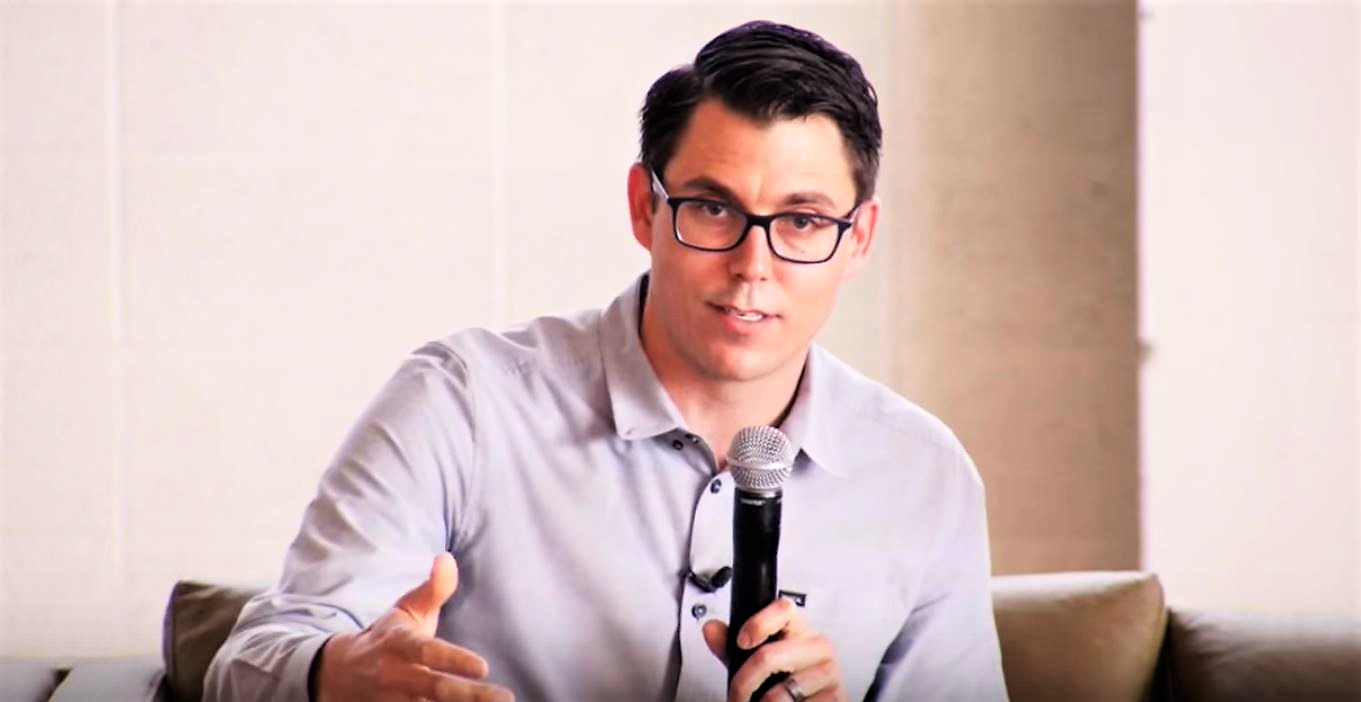
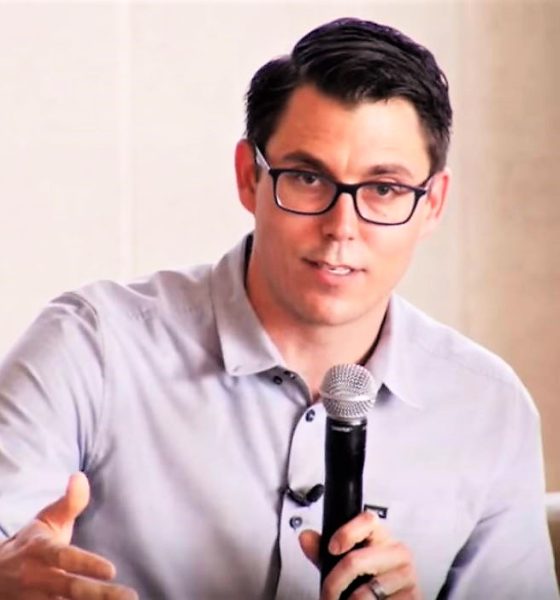
News
Rivian’s RJ Scaringe talks on-site farming plans for employees, battery storage solutions
Rivian CEO RJ Scaringe recently shared insights about the company’s psychology in a livestreamed conversation with professional rock climber Alex Honnold and Rich Roll, a long-time wellness advocate and endurance athlete. As Rivian develops the manufacturing capabilities necessary to build its all-electric R1T pickup truck and R1S SUV at market scale, serious consideration is going into how to harness their team’s energy into an industrial system that works for everyone involved.
“So, industrial systems you have very often are very much class-based system – the white collar workforce, the blue collar workforce – there’s a whole host of things that lead those two sides to often having friction. We see how unions have come in to sort of help try to make those two work a little bit better together. But, a big part of what we’re doing right now is actually mapping out and thinking about the psychology of our company and the psychology of this facility,” Scaringe detailed during the event.
One of the unique things Rivian has inherited during its growth into a full-fledged auto manufacturer is the work force from the 2.6 million square foot plant the company purchased from Mitsubishi. Scaringe described the human story of the facility as “remarkable”, citing how many of the people currently there were part of the original launch team that later had to shut the facility down.
“So, 1989-1990, there are people that are 21-22 years old, they launched the facility….25-30 years go by, they’re part of the team running it, building it, now have to shut this facility down,” Scaringe described. “When we bought the facility, we not only just got the hardware, the acreages of land…[Now] we’ve got a team of people that’s passionate about restarting the facility.”
The company hopes the motivation to restart the plant under a Rivian badge will carry over into a win-win for all involved.

“It’s really remarkable. I mean, I think we’ve got a gift to work with in terms of that level of energy and that passion to bring it back to life,” the CEO said. “As we think about how do we take this gift that we’ve been given in terms of a workforce that’s so motivated, and how do we challenge a lot of the conventions that have been built up in terms of industrial systems…we’re doing a lot of things in the facility to really take that energy and supercharge it, really harvest it.”
One of the ideas Rivian is working to benefit on-site employees utilizes the resources inherited from the plant itself. The acreage surrounding the actual facility isn’t entirely needed for production purposes, so the car maker is planning to partner with local universities for food production from ground to plate.
“We have 508 acres at the plant, a very small percent of which actually has the plant occupying it – most of it’s just grass. We’re gonna be turning a lot of that into an area to grow food. And we’re gonna run that in partnership with some of the local universities through their agriculture programs to grow food locally on our site…and then that food’s gonna be served in our facility with students that are learning from top chefs we’re bringing in to run the food services in our facility, and we’re gonna provide incredible food to our plant team regardless of what part of the plant you work in,” Scaringe revealed.
“[That way]…there’s true equity. Every employee is part of this mission of bringing this facility back up. And that positive energy that we’re establishing at the plant, we want it to be a benchmark for how industrial systems are run – the collaboration, the communication between groups, between our other facilities.”
The conversation with Rich Roll and Alex Honnold primarily involved another part of the company’s psychology – helping to accelerate widespread adoption of renewable energy. Rivian has partnered with the Honnold Foundation to use the electric truck maker’s “second-life” auto batteries for a micro-grid solar system in Adjuntas, Puerto Rico. Through this project and others in the future, older battery cells that are no longer efficient for electric vehicles are repurposed into stationary energy storage units.
Adjuntas was selected as their first project site due to the town’s need for energy assistance after struggling in the wake of Hurricane Maria in 2017. The Honnold Foundation and Rivian will be using 135 kWh battery packs from R1T and R1S development vehicles for that particular grid project; however, cells going into Rivian’s production vehicles have been purposefully designed to have a “second life” in energy storage. The move towards energy projects marks a huge step for Rivian, signaling its expansion beyond the manufacture of all-electric luxury adventure vehicles.
Rivian’s first vehicle deliveries to customers are still planned for the end of 2020. Scaringe said during the event that around 800 members of their preorder community, i.e., reservation holders, were in attendance at the event with Roll and Honnold, so a further manufacturing update was provided with that in mind.
“There’s a lot of stuff happening [at the plant]. We’re moving equipment, we’re putting new equipment in. We’ve got amazingly talented people working day and night to bring that facility up and start delivering cars as quickly as possible,” he promised.
Watch RJ Scaringe, Alex Honnold, and Rich Roll discuss the Honnold Foundation and Rivian’s facility details in the video below:

Cybertruck
Tesla confirms date when new Cybertruck trim will go up in price
Tesla has officially revealed that this price will only be available until February 28, as the company has placed a banner atop the Design Configurator on its website reflecting this.
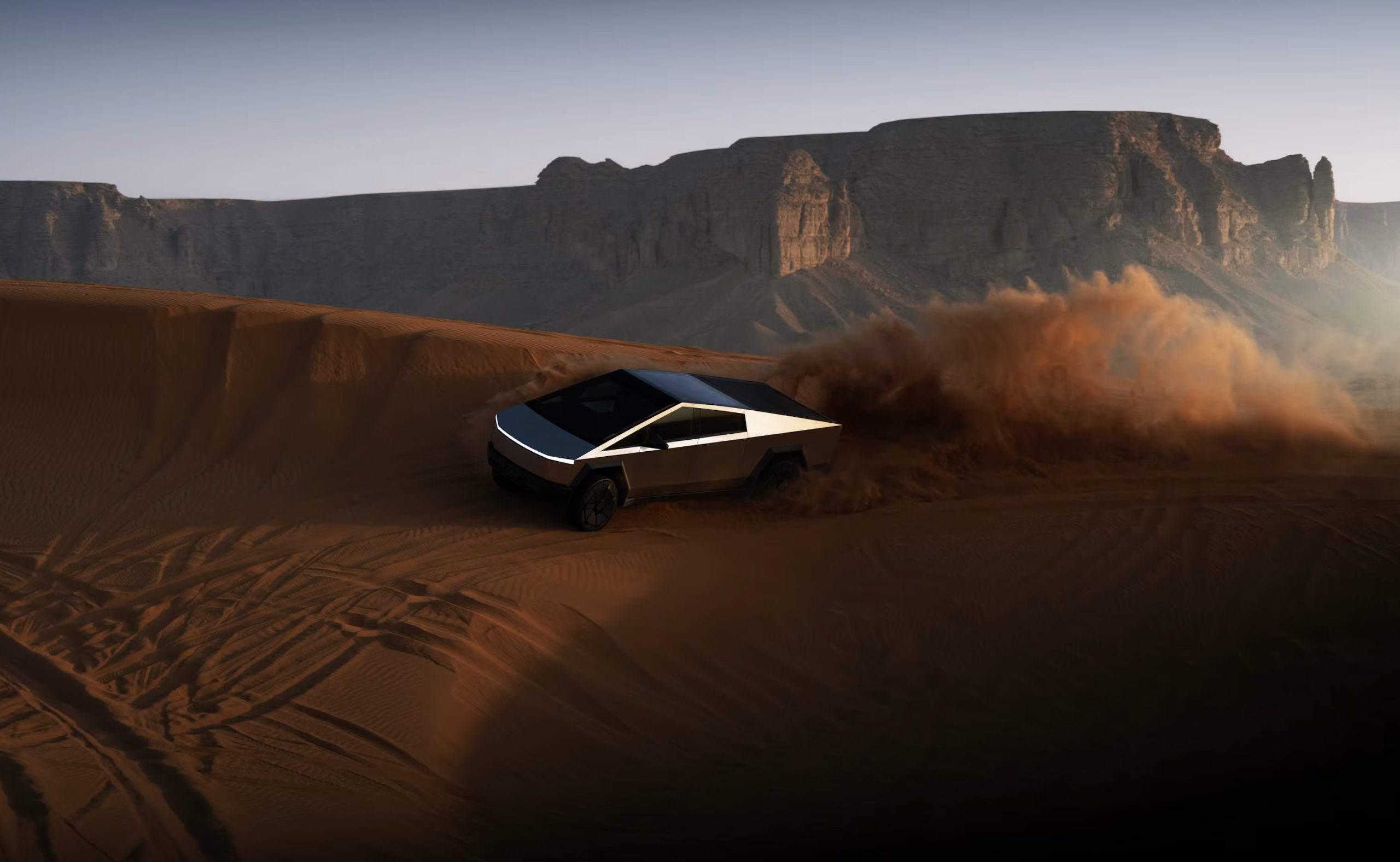
Tesla has confirmed the date when its newest Cybertruck trim level will increase in price, after CEO Elon Musk noted that the All-Wheel-Drive configuration of the all-electric pickup would only be priced at its near-bargain level for ten days.
Last week, Tesla launched the All-Wheel-Drive configuration of the Cybertruck. Priced at $59,990, the Cybertruck featured many excellent features and has seemingly brought some demand to the pickup, which has been underwhelming in terms of sales figures over the past couple of years.
Tesla launches new Cybertruck trim with more features than ever for a low price
When Tesla launched it, many fans and current owners mulled the possibility of ordering it. However, Musk came out and said just hours after launching the pickup that Tesla would only keep it at the $59,990 price level for ten days.
What it would be priced at subsequently was totally dependent on how much demand Tesla felt for the new trim level, which is labeled as a “Dual Motor All-Wheel-Drive” configuration.
Tesla has officially revealed that this price will only be available until February 28, as the company has placed a banner atop the Design Configurator on its website reflecting this:
NEWS: Tesla has officially announced that the price of the new Cybertruck Dual-Motor AWD will be increasing after February 28th. pic.twitter.com/vZpA521ZwC
— Sawyer Merritt (@SawyerMerritt) February 24, 2026
Many fans and owners have criticized Tesla’s decision to unveil a trim this way, and then price it at something, only to change that price a few days later based on how well it sells.
Awful way to treat customers – particularly when they already sent out a marketing email announcing the $59,990 truck…with zero mention of it being a limited-time offer.
— Ryan McCaffrey (@DMC_Ryan) February 24, 2026
It seems the most ideal increase in price would be somewhere between $5,000 and $10,000, but it truly depends on how many orders Tesla sees for this new trim level. The next step up in configuration is the Premium All-Wheel-Drive, which is priced at $79,990.
The difference between the Dual Motor AWD Cybertruck and the Premium AWD configuration comes down to towing, interior quality, and general features. The base package is only capable of towing up to 7,500 pounds, while the Premium can handle 11,000 pounds. Additionally, the seats in the Premium build are Vegan Leather, while the base trim gets the textile seats.
It also has only 7 speakers compared to the 15 that the Premium trim has. Additionally, the base model does not have an adjustable ride height, although it does have a coil spring with an adaptive damping suspension package.
Cybertruck
Tesla set to activate long-awaited Cybertruck feature
Tesla will officially activate the Active Noise Cancellation (ANC) feature on Cybertruck soon, as the company has officially added the feature to its list of features by trim on its website.
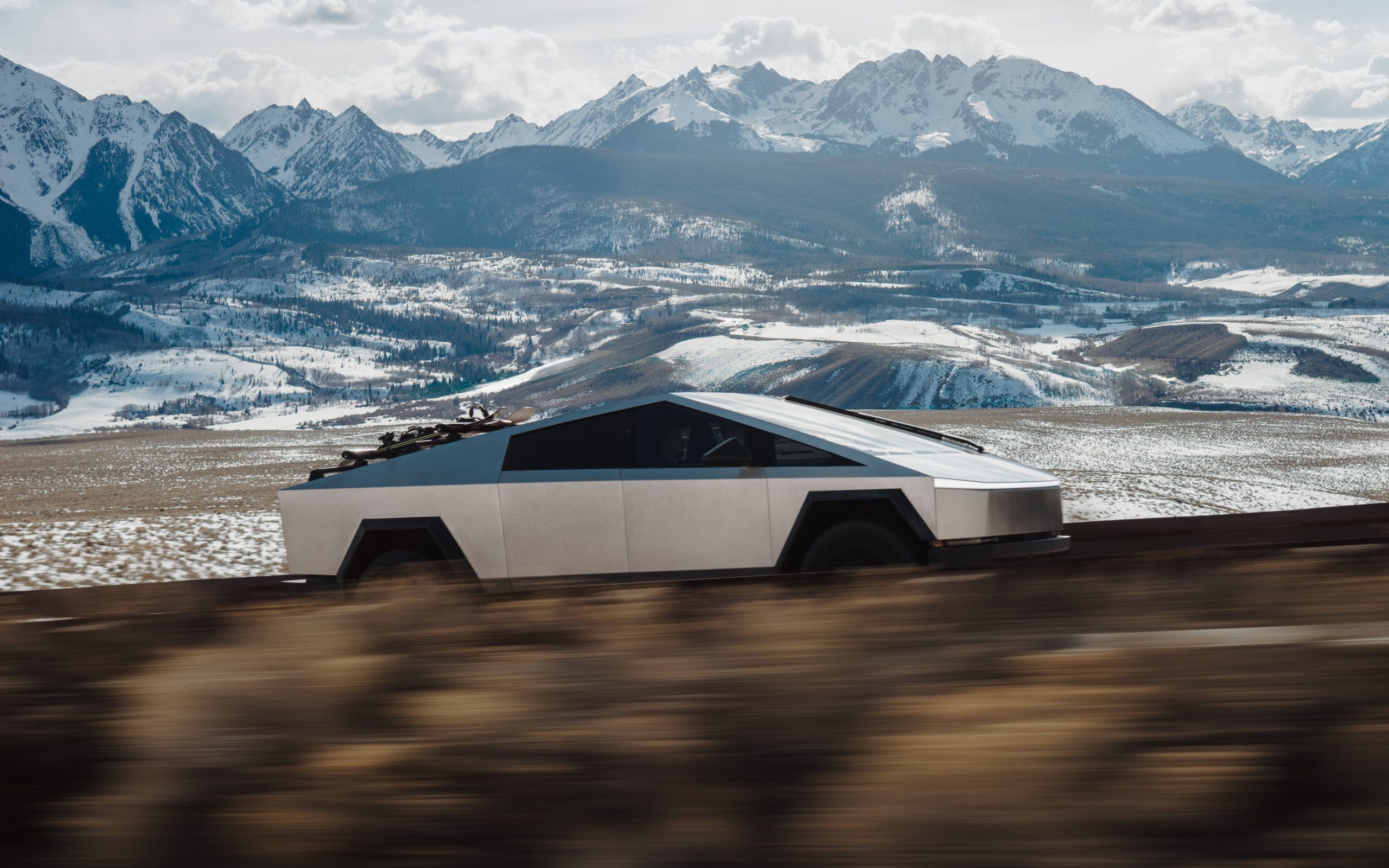
Tesla is set to activate a long-awaited Cybertruck feature, and no matter when you bought your all-electric pickup, it has the hardware capable of achieving what it is designed to do.
Tesla simply has to flip the switch, and it plans to do so in the near future.
Tesla will officially activate the Active Noise Cancellation (ANC) feature on Cybertruck soon, according to Not a Tesla App, as the company has officially added the feature to its list of features by trim on its website.
Tesla rolls out Active Road Noise Reduction for new Model S and Model X
The ANC feature suddenly appeared on the spec sheet for the Premium All-Wheel-Drive and Cyberbeast trims, which are the two configurations that have been delivered since November 2023.
However, those trims have both had the ANC disabled, and although they are found in the Model S and Model X, and are active in those vehicles, Tesla is planning to activate them.
In Tesla’s Service Toolbox, it wrote:
“ANC software is not enabled on Cybertruck even though the hardware is installed.”
Tesla has utilized an ANC system in the Model S and Model X since 2021. The system uses microphones embedded in the front seat headrests to detect low-frequency road noise entering the cabin. It then generates anti-noise through phase-inverted sound waves to cancel out or reduce that noise, creating quieter zones, particularly around the vehicle’s front occupants.
The Model S and Model X utilize six microphones to achieve this noise cancellation, while the Cybertruck has just four.
Tesla Cybertruck Dual Motor AWD estimated delivery slips to early fall 2026
As previously mentioned, this will be activated through a software update, as the hardware is already available within Cybertruck and can simply be activated at Tesla’s leisure.
The delays in activating the system are likely due to Tesla Cybertruck’s unique design, which is unlike anything before. In the Model S and Model X, Tesla did not have to do too much, but the Cybertruck has heavier all-terrain tires and potentially issues from the aluminum castings that make up the vehicle’s chassis, which are probably presenting some challenges.
Unfortunately, this feature will not be available on the new Dual Motor All-Wheel-Drive configuration, which was released last week.
News
Tesla Model S and X customization options begin to thin as their closure nears
Tesla’s Online Design Studio for both vehicles now shows the first color option to be listed as “Sold Out,” as Lunar Silver is officially no longer available for the Model S or Model X. This color is exclusive to these cars and not available on the Model S or Model X.
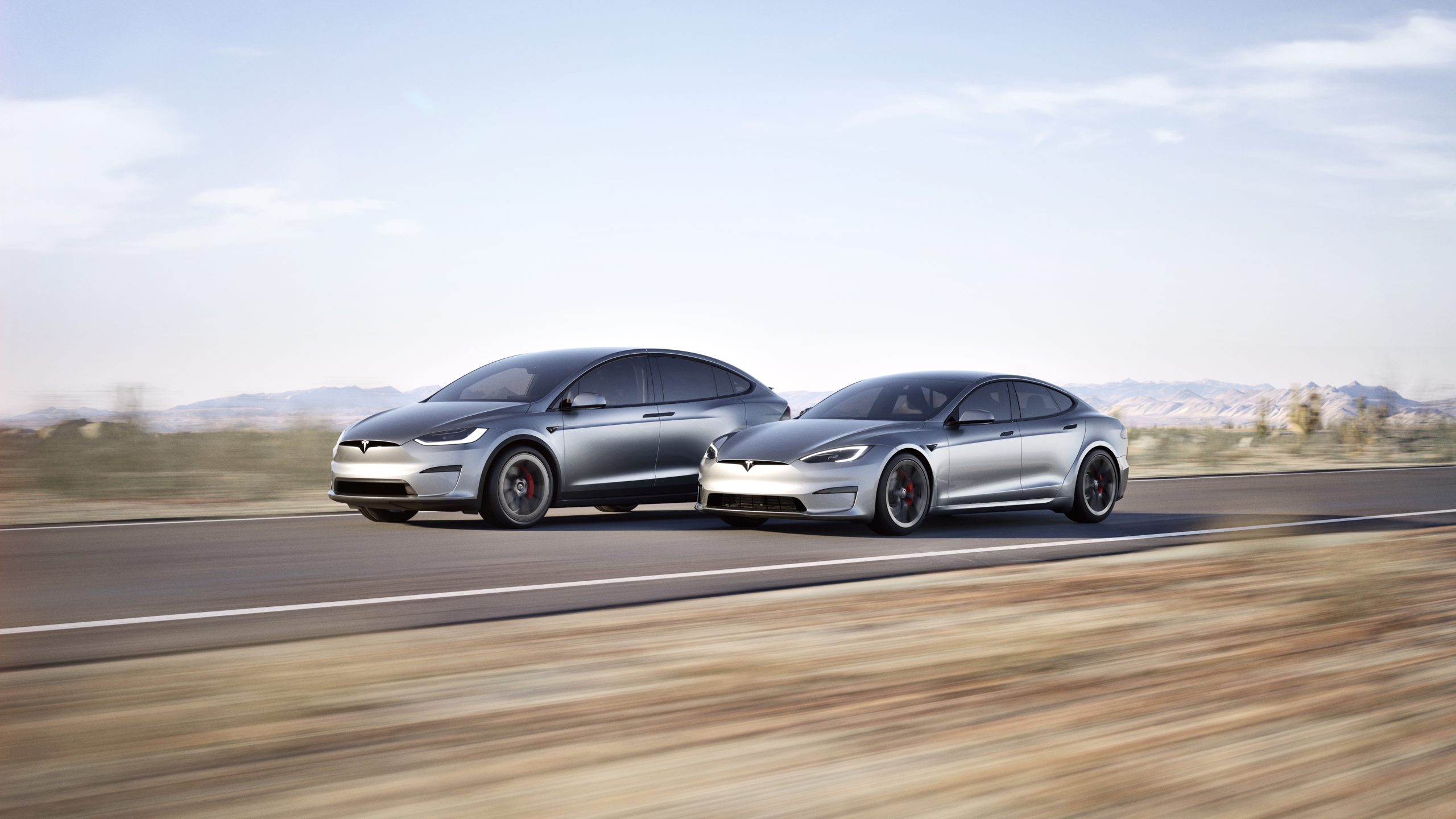
Tesla Model S and Model X customization options are beginning to thin for the first time as the closure of the two “sentimental” vehicles nears.
We are officially seeing the first options disappear as Tesla begins to work toward ending production of the two cars and the options that are available to those vehicles specifically.
Tesla’s Online Design Studio for both vehicles now shows the first color option to be listed as “Sold Out,” as Lunar Silver is officially no longer available for the Model S or Model X. This color is exclusive to these cars and not available on the Model S or Model X.
🚨 Tesla Model S and Model X availability is thinning, as Tesla has officially shown that the Lunar Silver color option on both vehicles is officially sold out
To be fair, Frost Blue is still available so no need to freak out pic.twitter.com/YnwsDbsFOv
— TESLARATI (@Teslarati) February 25, 2026
Tesla is making way for the Optimus humanoid robot project at the Fremont Factory, where the Model S and Model X are produced. The two cars are low-volume models and do not contribute more than a few percent to Tesla’s yearly delivery figures.
With CEO Elon Musk confirming that the Model S and Model X would officially be phased out at the end of the quarter, some of the options are being thinned out.
This is an expected move considering Tesla’s plans for the two vehicles, as it will make for an easier process of transitioning that portion of the Fremont plant to cater to Optimus manufacturing. Additionally, this is likely one of the least popular colors, and Tesla is choosing to only keep around what it is seeing routine demand for.
During the Q4 Earnings Call in January, Musk confirmed the end of the Model S and Model X:
“It is time to bring the Model S and Model X programs to an end with an honorable discharge. It is time to bring the S/X programs to an end. It’s part of our overall shift to an autonomous future.”
Fremont will now build one million Optimus units per year as production is ramped.








